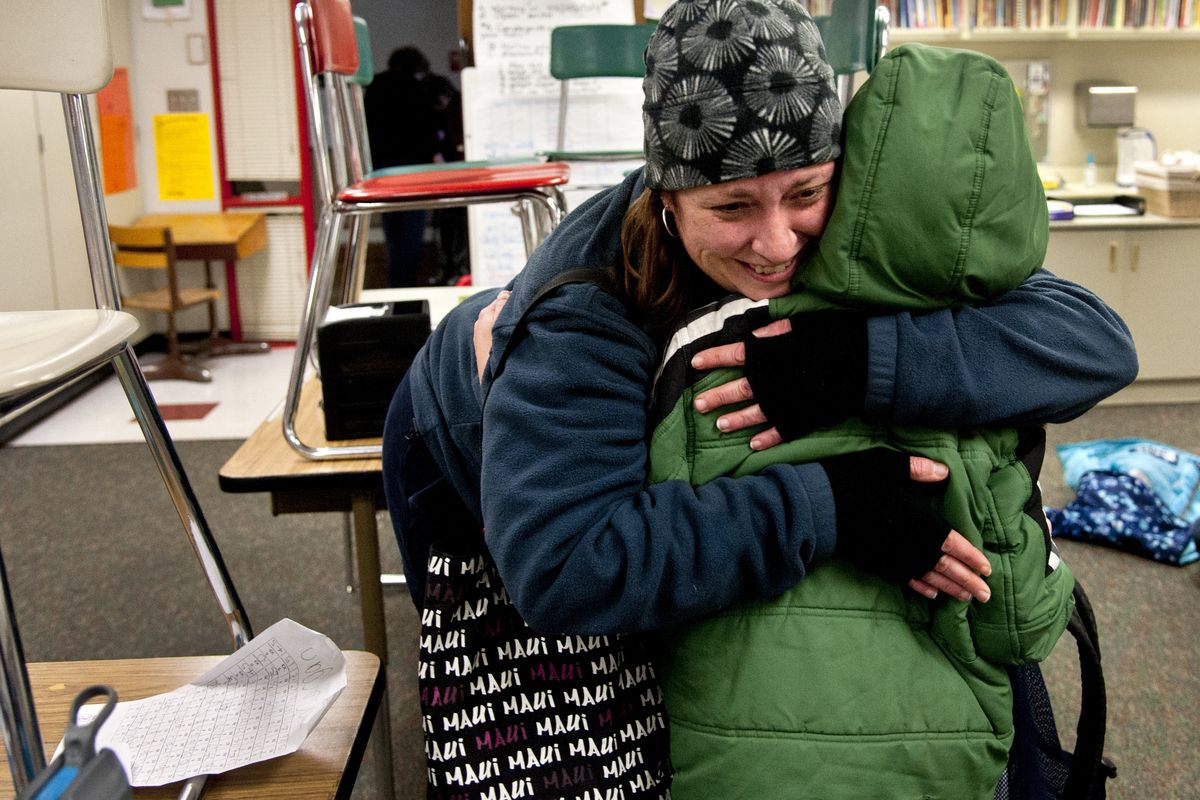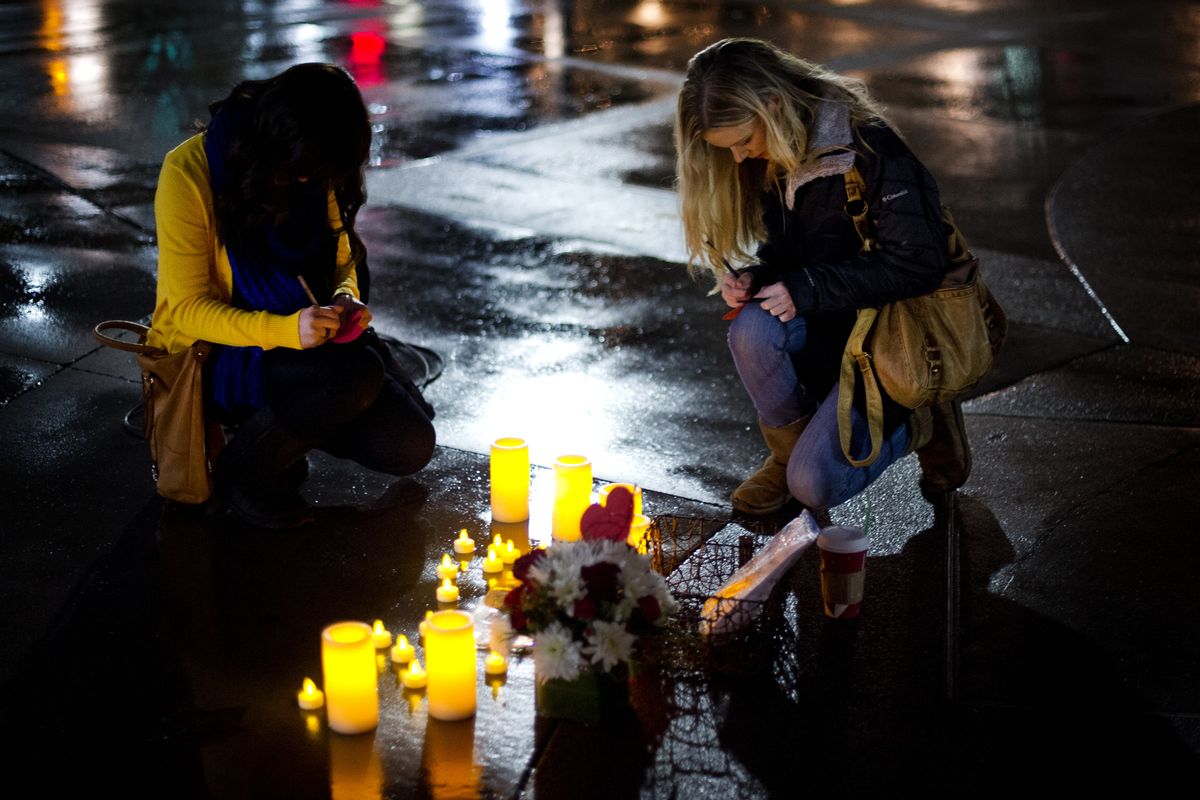Despite precautions, local schools still feel vulnerability
After watching news reports of the school shooting in Connecticut, Alicia Combo tightly hugs her son, Morgan Askins, at the close of the school day Friday at Garfield Elementary. (Dan Pelle)Buy a print of this photo
The tragedy in Connecticut could happen here.
That’s the reality that struck parents, district officials, teachers and law enforcement in the Inland Northwest Friday as the story unfolded in Newtown, Conn., where a masked gunman massacred 20 children and six adults in an elementary school.
“It kind of makes you sick to your stomach, then you worry about what you can do to make sure this doesn’t happen here,” said Tom Rockefeller, Mead School District superintendent. “I can’t say there are any guarantees, and that’s what keeps you up at night – trying to make sure kids are safe.”
Schools regularly revamp safety and security policies to adapt to concerns. Earthquake and nuclear bomb drills have been replaced over the years with crisis drills for a school shooting, bomb threat or an armed person loose in the neighborhood. Often the drills involve a lockdown: All external doors are locked, students are rushed into classrooms and those doors are locked, too.
“All of our schools have procedures and security, but this is a time, unfortunately, to sit down and take a good, hard look at our procedures and see what else we can do,” said Duane Schafer, Catholic Diocese of Spokane superintendent of schools. “Are there any holes in our security?”
Elementary schools in nearly every Eastern Washington and North Idaho school district have a single point of entry, usually one unlocked door at the main entrance next to a school office. Most often, those doors direct visitors to sign in at the office, but there’s nothing to physically prevent a person from entering the school, apart from office staff.
Some schools’ entryways are monitored by cameras. Spokane Public Schools, the region’s largest district, now has more than 1,000 cameras inside and outside the district’s schools.
At Spokane Public Schools, resource officers can lock a school’s doors from a laptop, said Jason Conley, Spokane Public Schools director of safety, security and transportation.
Regionally, school districts also work with local police and sheriff’s offices to keep students safe. After hearing the news Friday, Spokane police Chief Frank Straub called Spokane Public Schools Superintendent Shelley Redinger to tell her his officers would be increasing their presence around elementary schools.
“Our relationship with the police department is invaluable,” Redinger said.
When she heard the news about the Friday shooting, Tiffany Vakaloloma rushed to Greenacres Elementary in Spokane Valley to have lunch with her kids.
“I don’t understand how anything like this can happen,” she said. “After the Portland thing and now this, I just feel like we are not safe anywhere.”
Alicia Combo, whose son attends Garfield Elementary School in Spokane, went into the boy’s classroom after school Friday to hug her son as well as his teacher, Paula Lee.
Coeur d’Alene Superintendent Hazel Bauman said what happened Friday is “almost beyond words. It’s beyond comprehension.”
She added, “At the end of the day, we can prepare to make kids as safe as possible, but short of putting large fences with metal detector entrances, I don’t think that any public place in this country is impermeable.”
Metal detectors may be the only way to prevent an armed person from gaining access to students, but officials say adding them to most area schools is not likely.
Conley, the security director at Spokane Public Schools, said the logistics of getting so many students through metal detectors every morning aren’t feasible.
What’s more, “there’s this balance of safety, and convenience and reality, and I just don’t think America is there yet,” he said. “You re-evaluate the threat level and consider what’s next.”
David Rawls, retired superintendent of the Moses Lake School District, can particularly sympathize with the people of Newtown.
In February 1996, 14-year-old Barry Dale Loukaitis entered Frontier Middle School in Moses Lake and shot and killed his algebra teacher and two fellow students.
“Just trying to survive, it will be a long process for that community as it was in Moses Lake,” Rawls said with emotion.
He said it’s human nature to ask how such an event can be prevented in the future.
The sad truth, he said, is that “I don’t think you can prevent it if someone is bent on doing this kind of horror. All of those things are designed to try to help you, but when you get someone who’s bent on creating mayhem and willing to die in the process, it’s impossible.”

